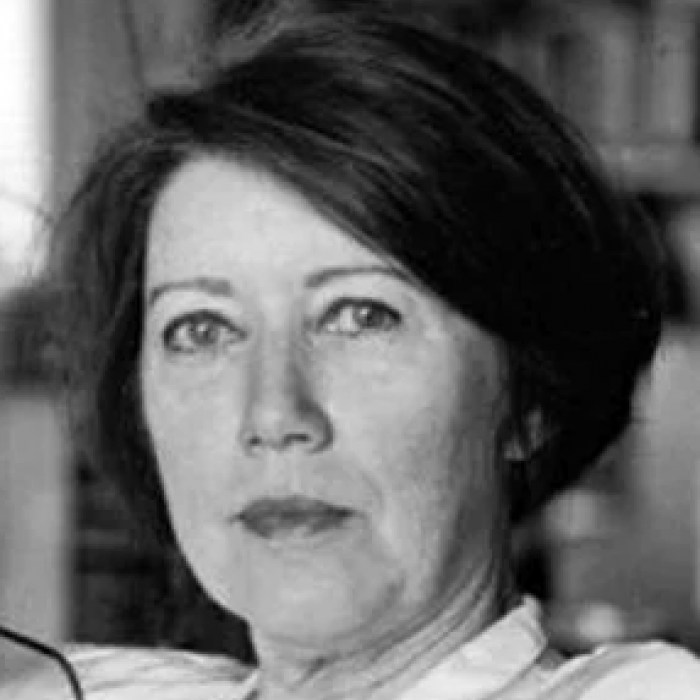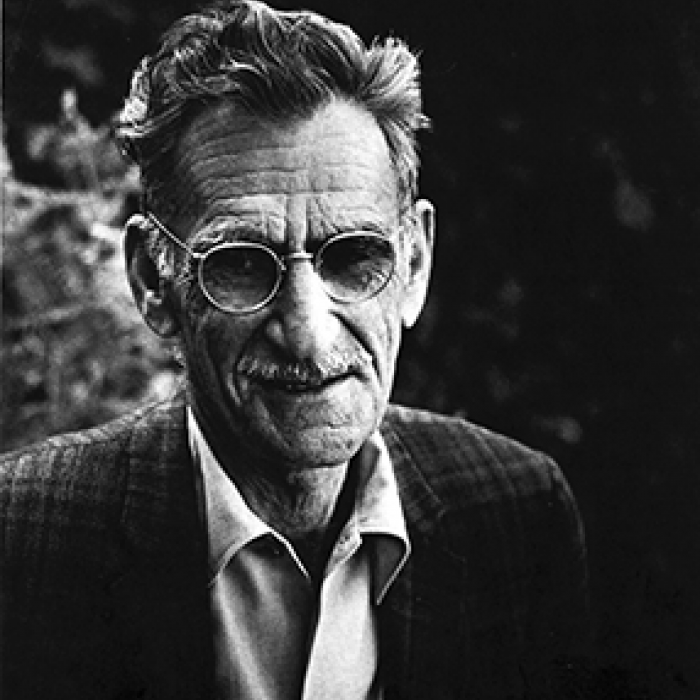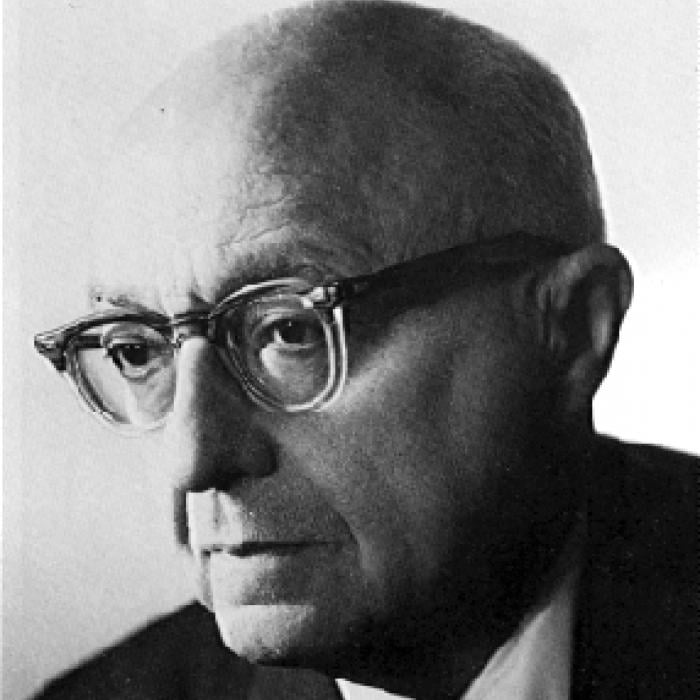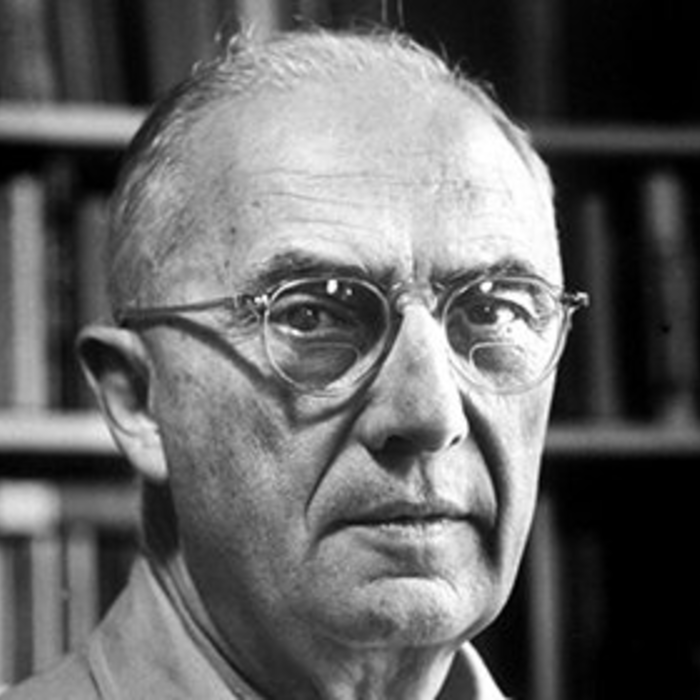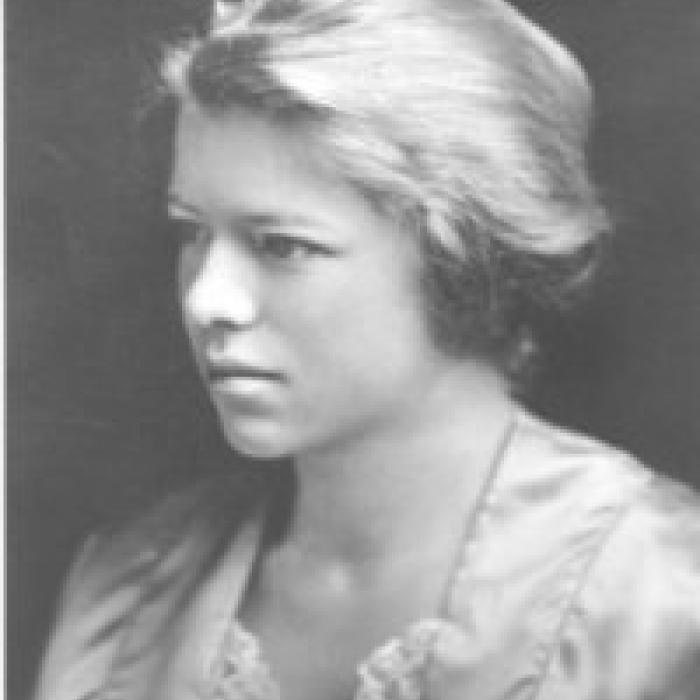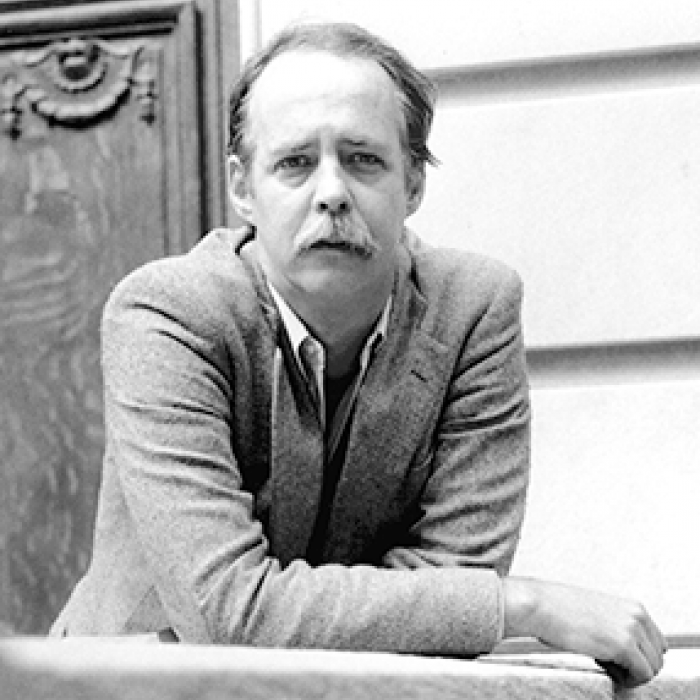Basil Bunting
Born March 1, 1900 in Scotswood-on-Tyne, Northumberland, to a family of Quakers, Basil Bunting first attended Ackworth School in Yorkshire and Leighton Park School in Berkshire until the age of eighteen. Bunting’s Quaker education informed a strong opposition to World War I, and, after high school, Bunting was arrested for being a conscientious objector to the war. For this, he was imprisoned at Wormwood Scrubs and Winchester until 1920. At twenty, Bunting relocated in order to attend the London School of Economics. There, he encountered a circle of writers, activists and intellectuals including Nina Hamnett and Mina Loy. It is thought that Hamnett first introduced Bunting to the poetry of Ezra Pound by loaning him a copy of Sextus Propertius.
While at the London School of Economics, Bunting was able to travel throughout Europe. Following his studies, he relocated to France where he befriended Pound. This relationship influenced both Bunting's poetry and politics. Pound’s Guide to Kulchur (1938) was dedicated to both Bunting and poet Louis Zukofsky.
In 1929, Bunting married Marian Culver. They had three children together. After visiting Pound in Italy, Bunting moved to Rapallo, where he lived from 1931 to 1933. During the years in Italy, Bunting continued to develop his poetry and became recognized for his intelligence and innovation. On the recommendation of Pound, Poetry magazine editor Harriet Monroe invited Zukofsky to edit an issue entitled “Objectivists 1931,” to be released in February, 1931. Bunting was featured in this issue along with poets George Oppen, Charles Reznikoff, William Carlos Williams, and Kenneth Rexroth. According to Zukofsky, all of the poetry in the issue was able to balance what is “objectively perfect,” with an interest in “clear or vital particulars.”
During World War II, Bunting served as a translator for the British Military Intelligence in Persia, then worked at the British Embassy. In 1948, he married Sima Alladadian. They lived in Tehran until 1952, when Bunting was expelled by Muhammad Mussadegh. Bunting relocated to Newcastle, and wrote for the Evening Chronicle.
In 1950, Bunting published his first full-length collection, Poems: 1950 (The Cleaner’s Press). This debut was followed by The Spoils (The Morden Tower Book Room, 1965), then First Book of Odes and Loquitur, both published by Fulcrum Press in 1965. However, Bunting remained largely unknown until the publication of his long autobiographical poem “Briggflatts” in 1966. The critic, Cyrill Connelly, called “Briggflatts” “the finest long poem to have been published in England since T. S. Eliot’s Four Quartets,” and Bunting received both an Arts Council Bursary and a Northern Arts Poetry Fellowship following its publication. Bunting’s Collected Poems was published in 1968; the second edition was released in 1980.
Bunting died in Hexham, Northumberland on April 17, 1985. He is buried in Brigflatts, the Quaker meetinghouse that was the namesake of his most famous poem.

